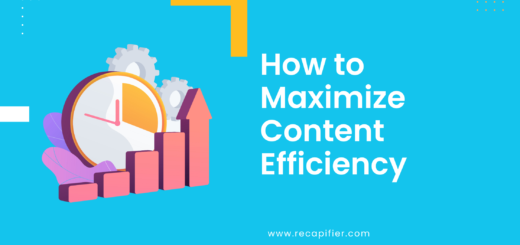Complete Guide: Marketing Your WordPress Plugin in 2024

If you’re a WordPress plugin developer or someone who likes to create unique WordPress themes, you need a solid way to promote your plugins. If people don’t hear about your plugins or themes, you will end up losing sales for your business.
Ideally, you want to make sure it’s profitable for you to put in all the effort of creating a robust WordPress plugin. This is why it’s important for WordPress plugin and theme developers or owners to start marketing their creations to the max as soon as they are launched.
In this post, we’ll cover everything you need to know for marketing your WordPress plugin in 2024 and how it helps your business boost sales and generate more revenue.
Marketing your WordPress Plugin
If you’re putting in all the resources to create intuitive and robust WordPress plugins, it might be a smart idea to promote and effectively market them. This way, more people will know about your creations and make your development efforts profitable. You don’t want to ‘waste’ precious business resources only to find out your target audience is not downloading your plugin.
Even if the WordPress plugin you created works the best and is flawless, it won’t sell if people don’t get to know about it. It’s crucial to understand that you need to get your WordPress plugins in front of the eyes of your target audience for making more sales.
This is one of the reasons why marketers are constantly evolving their marketing strategies to better adapt to the quickly changing environment on the internet. Marketing your plugin also ensures that all the effort you and your team members put in coding, fixing bugs, and creating a unique product pays off in the long run. Although it can be tough to manage marketing tasks when you’re also responsible for handling other important business tasks. However, using effective ways, you can market your WordPress plugins without worrying about sacrificing other aspects of your business.
Types of marketing for your WordPress plugin
Depending on your business and your needs, there are two major marketing types you can use to implement different marketing strategies for your WordPress plugins. This is crucial for making sure the marketing strategy is successful and suits your business and audience the best.
Let’s dive deeper into two marketing types you can use for your WordPress plugins and themes:
- Outbound marketing. Outbound marketing is also known as the ‘annoying’ way of promoting something to your audience. It’s an effective way to promote your products with the use of pop-ups ads, banner ads, and or paid reviews. The only disadvantage to using outbound marketing is that it disturbs your customer’s ability to keep consuming your content. This can cause prospective customers to bounce off your website so that they avoid annoying pop-up ads. This style of push messaging marketing tactic is also not recommended for start-ups as it can be very draining on your budget.
- Inbound marketing. Inbound marketing can be used to promote your WordPress plugins and themes only to your target audience. In the case of outbound marketing, you’re essentially targeting a wider audience to promote your products to. But inbound marketing lets you attract your best prospective customers who are interested in making a purchase from you. This way, you don’t waste your business’s marketing efforts only to find out users are bouncing off your website.
Inbound marketing is used primarily for attracting more organic traffic to your WordPress site by offering more information about your WordPress plugin to interested users. This way, customers will be incentivized to purchase your WordPress plugin after finding out the solution it offers or the problems it intuitively fixes.
Ways to market your WordPress plugin
Now with a better understanding of the different types of marketing you can use for promoting your WordPress plugin, let’s take a closer look at some of the best ways to market your plugin.
Implement content marketing strategies
Using content to promote your WordPress plugins and themes is one of the best ways to encourage more sales. Marketers implement content marketing strategies as a way to get products and services the ‘right’ exposure. This essentially means you’re promoting the products to already interested users. As a result, it’s a sure way of boosting sales and generating more revenue for your business.
Creating a blog and publishing unique content on it is a great way to market just about anything. For instance, you can hire a content writer to create your properly structured blog posts that help solve common WordPress problems using your plugin. This not only promotes your plugin but also helps show the user what your WordPress plugin is all about, without them having to spend a single penny. In addition to this, you can also strategically place a call to action button to purchase the plugin at the bottom of the blog post. This way, you offer a quick and easy way for interested users to proceed with the purchase and try to fix the problem themselves too. Blogging allows you to communicate with your target audience better and helps attract new site visitors to your WordPress site.
Similarly, you can also create blog posts for publishing on high-priority websites. This way, you get your WordPress plugin’s name out there and attract interested users that want to know more about your product and your brand. However, it’s important to mention that you just don’t want to write a detailed review of your WordPress plugin for guest posts. Instead, you can help readers solve a problem using your plugin. This comes off more professional and doesn’t ‘annoy’ the reader as they don’t scroll through multiple paragraphs explaining just the features of your plugin. You can also pay robust content creation companies to write a sponsored post for your WordPress plugin. This is great for saving time but in return will cost you more money for creating and publishing content related to your WordPress plugins and themes.
You can also create and publish video guides on how to use your WordPress plugin to fix common issues in WordPress. For instance, you can create a YouTube video explaining the advanced features of your WordPress plugin and link them to your WordPress plugin’s product page. This not only helps you cater to all types of users but also enhances the customer support experience of your WordPress plugin. As a result, you encourage more sales and help improve customer retention.
Ensure top-notch plugin customer support
Plugin support is not only just an after-sales thing, it’s crucial for making more sales and gaining the trust of your customers quickly. Bad customer support can put out a bad first impression on your WordPress plugin and your brand. Eventually, it can cause your loyal customers to turn towards your competitors that offer better customer support with their WordPress plugins or themes.
Ideally, you should be mentally prepared to offer top-notch customer support with your plugin 24/7. A great way to do this is to hire a team of experts that can handle all customer support queries perfectly and on time. This can encourage more prospective customers to finally have the confidence to trust your brand with their hard-earned money. This also is crucial for maintaining good customer relations after the sale has been made. For instance, if your customer has a hard time first setting up your WordPress plugin and they reach out to your customer support channel, it’s important to put in the extra effort to ensure the customer’s problems are solved. In the long run, it helps you improve customer retention and puts out a positive, trustworthy brand image for your business. It’s a great way to ensure your previous customers keep coming back for more, especially when you launch new updates or WordPress plugins. The more loyal customers you create for your brand, the more likely they are to mention your brand to their friends and family members. You can also offer referral rewards to promote your WordPress plugin more and boost sales for your business.
Another important factor in maintaining top-notch plugin customer support is creating an engaging WordPress.org page. It’s one of the biggest places for all types of WordPress users to find new plugins and themes for their sites. When creating your product page in the WordPress.org repository you should double-check name spellings, the product URL, include high-quality images, and answer some of the most common questions in the “FAQs” section of the page. If you provide all information about your plugin and how to use it, there is a higher chance more people are going to try out your WordPress plugin.
Offer a freemium version of your WordPress plugin
WordPress is basically built around the ‘open-source’ model and most users expect to use high-quality themes and plugins for free on their WordPress sites. This is why it can be beneficial for promoting your WordPress plugin if you offer a ‘freemium’ version of your plugin. This not only helps encourage more people to try out your plugin but also helps cater to all types of customers, even the ones who don’t have the budget to purchase your premium WordPress plugin.
It works simply because people can test-drive your WordPress plugin before they spend a single penny on it. It helps give them a better understanding of your WordPress plugin and helps promote it to a wider audience. The freemium version can include limited functionality compared to the premium or ‘Pro’ version of your WordPress plugin. This way, you don’t give away all your valuable features for free. Customers will not find it important to upgrade to the premium or paid version of your plugin if the freemium is enough for fixing their problems. Additionally, you can also offer paid add-ons but offer a free basic core product as your WordPress plugin. This way, people who can spend the money or want to extend the functionality of your WordPress plugin can pay extra for premium add-ons.
Offering a free version of your final WordPress plugin can also be a way to gather real feedback from interested customers and see how well your idea works. This way, you can take care of bugs and improve your WordPress plugin before the final, premium version is launched and ensure more sales right from the get-go.
Use social media
Social media is a growing industry and there’s no reason for your business to not promote your WordPress plugins on it. It helps you target a wider audience as more than 4.48 billion people currently use social media around the world. This means there are a lot more people you can promote your WordPress plugins to compared to attracting site visitors to your website.
You can use popular social media platforms such as Facebook, Twitter, and Instagram to market your WordPress plugin and tell people about the amazing features it comes built-in. To maximize social media marketing channels, you need to regularly publish content there and tell people how your WordPress plugin can fix the user’s problems. You can include high-quality engaging images and infographics of your WordPress plugin as well as use hashtags to let users find your post easily.
There are many ways you can promote your WordPress plugin using social media. You can create and run Facebook ads, and create groups of interested audiences so you can connect with them better.
Enhance the SEO of your WordPress site
Enhancing the SEO of your WordPress site is also useful in promoting your WordPress plugins. This gives users an easier time finding your WordPress plugins through search engines by entering relevant keywords.
You can perform proper keyword research to ensure there are high-priority keywords included in your WordPress plugin product pages. This helps your product pages to appear higher in users’ search engine results. Eventually, this helps you attract more organic traffic to your site that can be later converted to a sale.
Bonus: Useful tips for marketing your WordPress plugin
Offer an affiliate program. When you offer an affiliate program on your site, you’re essentially giving away money when customers bring new customers to try out your WordPress plugin. Affiliates may also promote your plugin by mentioning it on their social media accounts. Give your already existing customers an incentive to promote your WordPress plugin. This way, you market your WordPress plugin without having to put in the effort yourself.
Include testimonials/plugin reviews on your site. Another great way to market your WordPress plugin is by including plugin reviews on your site. Customer testimonials help convince site visitors to also try your WordPress plugin themselves. It also helps prospective customers trust your brand and your WordPress plugin easily, without having to worry about wasting their hard-earned money.
Optimize plugin product pages. Displaying your WordPress plugin on a fully optimized product page is also important in promoting it efficiently. You need to make sure you include high-quality screenshots, detailed plugin documentation, answer helpful FAQs and include a demo for users to see what it looks like on the front-end of WordPress.
Conclusion
Marketing your WordPress plugin is important in ensuring all your hard work pays off in creating the plugin. However, it can be hard to promote your plugin and get the results you’re looking for, especially for new business owners.
You should use content marketing strategies to promote your WordPress plugin and find your target audience. You can create properly-structured blog posts about your WordPress plugin and include demo videos explaining the advanced functionality it offers. It’s a great way to increase organic traffic to your site while also improving the SEO of your website. It’s also important to maintain top-notch customer support for your WordPress plugin 24/7. This helps create a positive brand image for your business which is needed to gain the trust of prospective customers. In addition to this, you should also consider offering a freemium version of your WordPress plugin as a way to let users see what your plugin is all about. This not only encourages sales but also helps you cater to all types of customers, even the ones who cannot afford to pay for the premium plugin.
What are some of the ways you market your WordPress plugin? Let us know in the comments box below.





